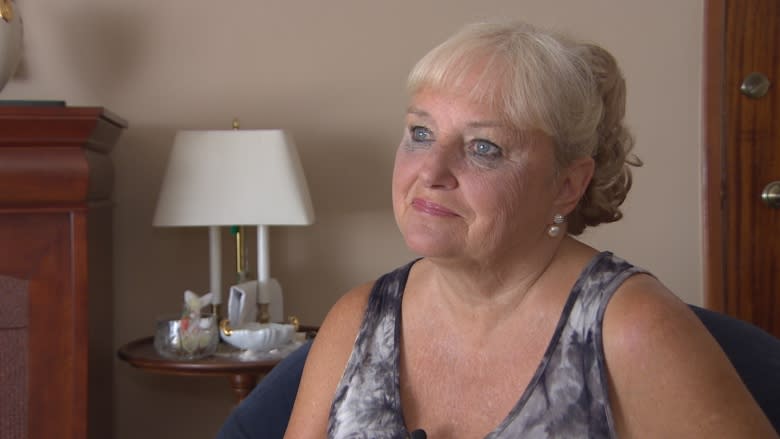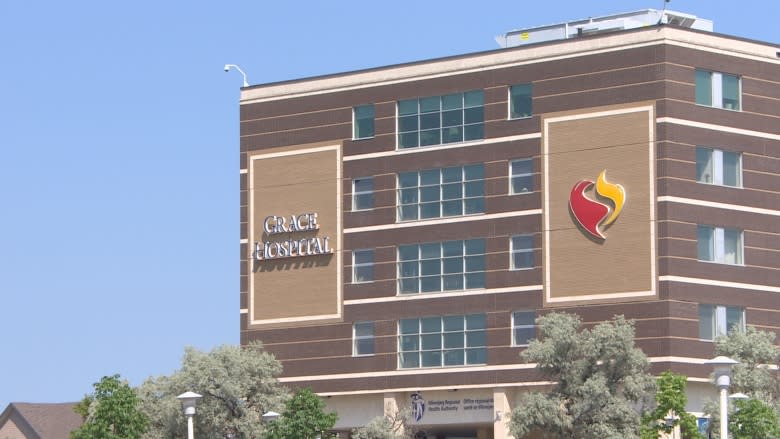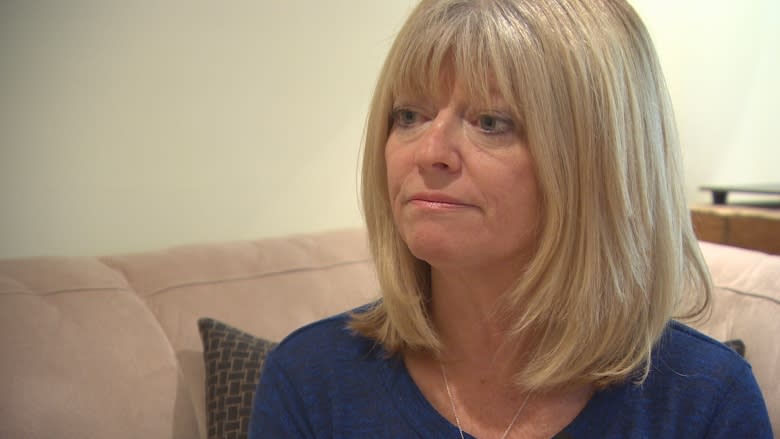'Not my medical emergency': Anxiety patient shown door at Grace Hospital
A retired nurse says she was shamed and denied treatment by an emergency room physician last week while trying to get help for severe anxiety at Winnipeg's Grace Hospital.
Mavis Swedlo, 65, said she went to the emergency room on Thursday after suffering debilitating anxiety for days.
She said she was unable to sleep or eat, her limbs felt like "jelly" and was constantly dry heaving. After a triage nurse took her vital signs, Swedlo said, she was seen by an emergency room doctor.
"He was really snarky with me," she remembered. "He said to me, 'What do you want from me? What do you think I'm going to do for you?'"
Swedlo told him that she felt unwell, she hoped to receive a prescription for anti-anxiety medication and that, if he couldn't help her, she would like to be referred to a psychiatrist.
"He said to me, 'Your medical emergency is not my medical emergency,'" she said. The doctor then told her there was no psychiatrist at the hospital who could see her.
Swedlo said she would wait in the hospital lobby until someone was able to help her. The doctor then threatened to call security, she said.
"I just started sobbing. The triage nurse came around from her desk and put her arms around me," she said.
Doctor followed protocol, hospital says
Dr. Ramin Hamedani, chief medical officer for Winnipeg West, which includes Grace Hospital, said after reviewing her chart the care Swedlo received was "completely adequate."
Still, Hamedani said he will be following up with the physician who treated her to review Swedlo's complaints.
"Every patient that comes to our site deserves and should expect compassion and respect from our physicians," he said.
Hamedani said a patient relations officer with the hospital will follow up with Swedlo to ensure that she finds the care she needs.
Emergency room doctors are supposed to refer patients who do not require admission to hospital to the Winnipeg Regional Health Authority's Crisis Response Centre, Hamedani said.
"The emergency room physician's assessment is to make sure obviously the patient is safe and their needs are met," he said.
"If she required any kind of a further assessment or in-patient assessment or an admission that would have been determined at the time … In this case it was felt obviously that was not required."
Struggle for mental health care
Since January, Swedlo says, she has been in and out of offices including the Crisis Response Centre and had two previous visits to the Grace where she met with a psychiatric nurse to little avail.
Her family doctor was able to get her an appointment with a psychologist at St. Boniface General Hospital, but it is not scheduled until the end of October.
"It makes me sad to think that we don't treat mental health issues the same way that we treat physical issues," she said.
After Swedlo spoke with CBC News, she said the Crisis Response Centre contacted her this week to help set up an appointment with a psychiatrist.
"I need a physician who can help, maybe give me some medication," she said.
Swedlo suffers from post-traumatic stress disorder stemming from a past abusive relationship, and says she has found little help from talk therapy or cognitive behavioural therapy.
She said medication her family doctor has prescribed has done nothing to curb her anxiety.
More support needed: advocates
Bonnie Bricker said she isn't surprised to hear what happened to Swedlo at Grace Hospital. Bricker started working for the Mood Disorders Association of Manitoba after becoming a mental health patient advocate to raise awareness following her son Reid's death.
"If somebody came in with a heart attack, and you gave them meds and you said to them, 'I'm so sorry, there's nothing we can do for you ... and if you try and stay we're going to escort you out by security,' ... we would never do that," Bricker said.
"If this was your mom, would you be OK with saying that to her and treating her that way? Would you be satisfied with that?"
Marion Cooper, the Canadian Mental Health Association's executive director for Manitoba, said patients who need urgent mental health care in Winnipeg should consider contacting Health Science's Crisis Response Centre first rather than going to an emergency room.
"The emergency department is really created for traumas and so it really isn't the ideal setting so it really isn't the ideal setting for anybody who'se experiencing a mental health concern," Cooper said.
Community resources, including peer-to-peer support as well as counselling, can also be very beneficial for some anxiety sufferers in conjunction with medication, she said.
However, there's a catch: Wait lists abound in the mental health sector, a symptom of an under-funded system, she said.
"We're hopeful with the federal government's commitment to mental health and home care that some of those resources will start to come to our province and we'll be able to see more supports available for Manitobans," she said.




